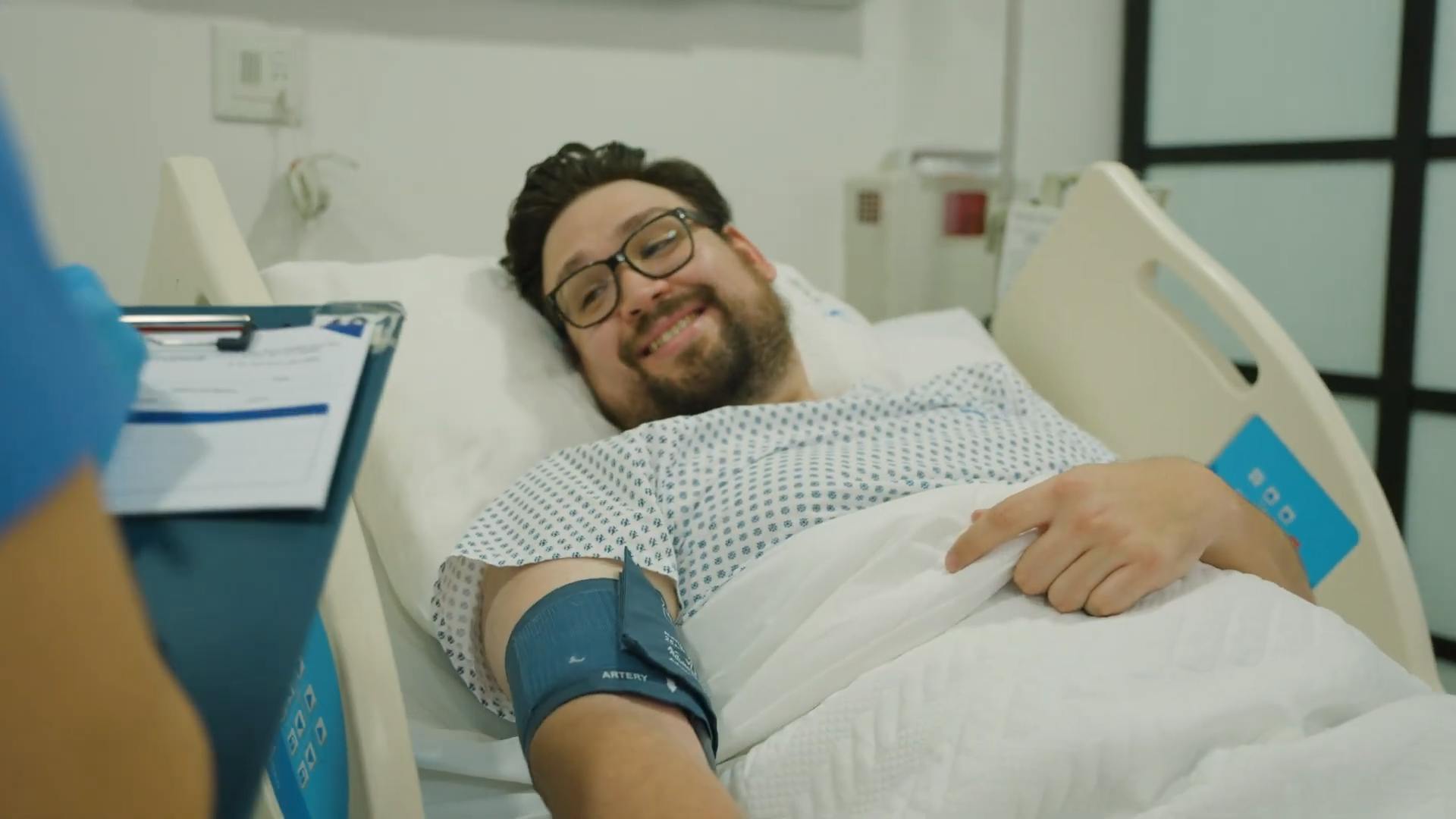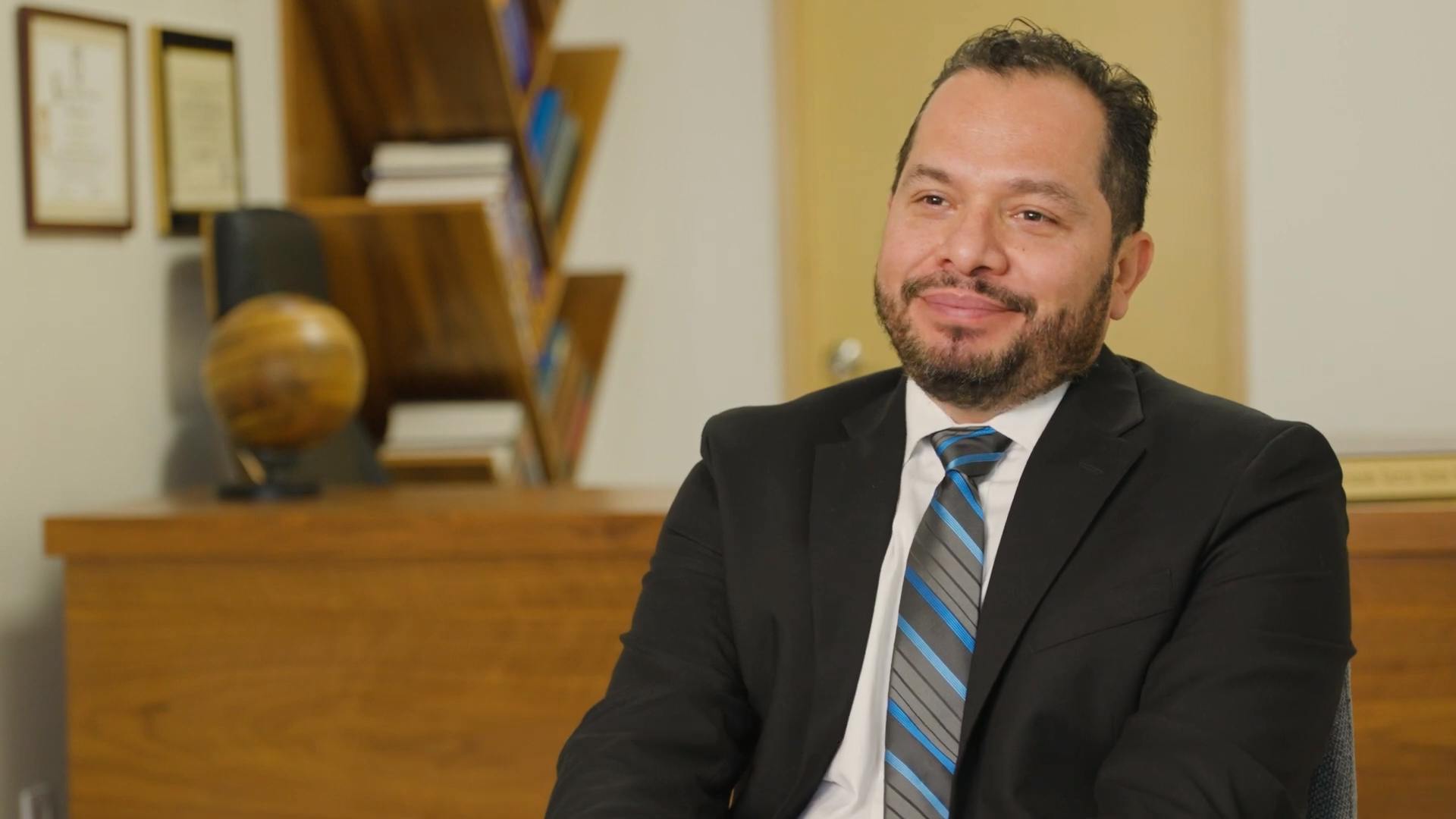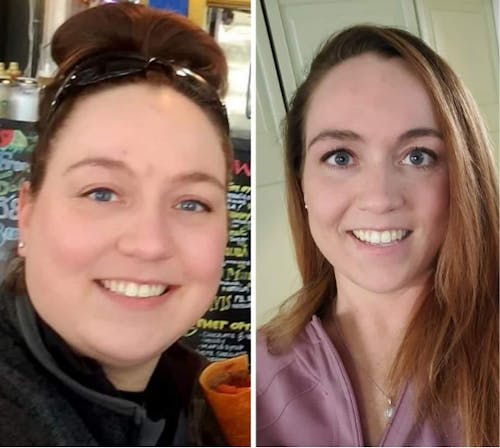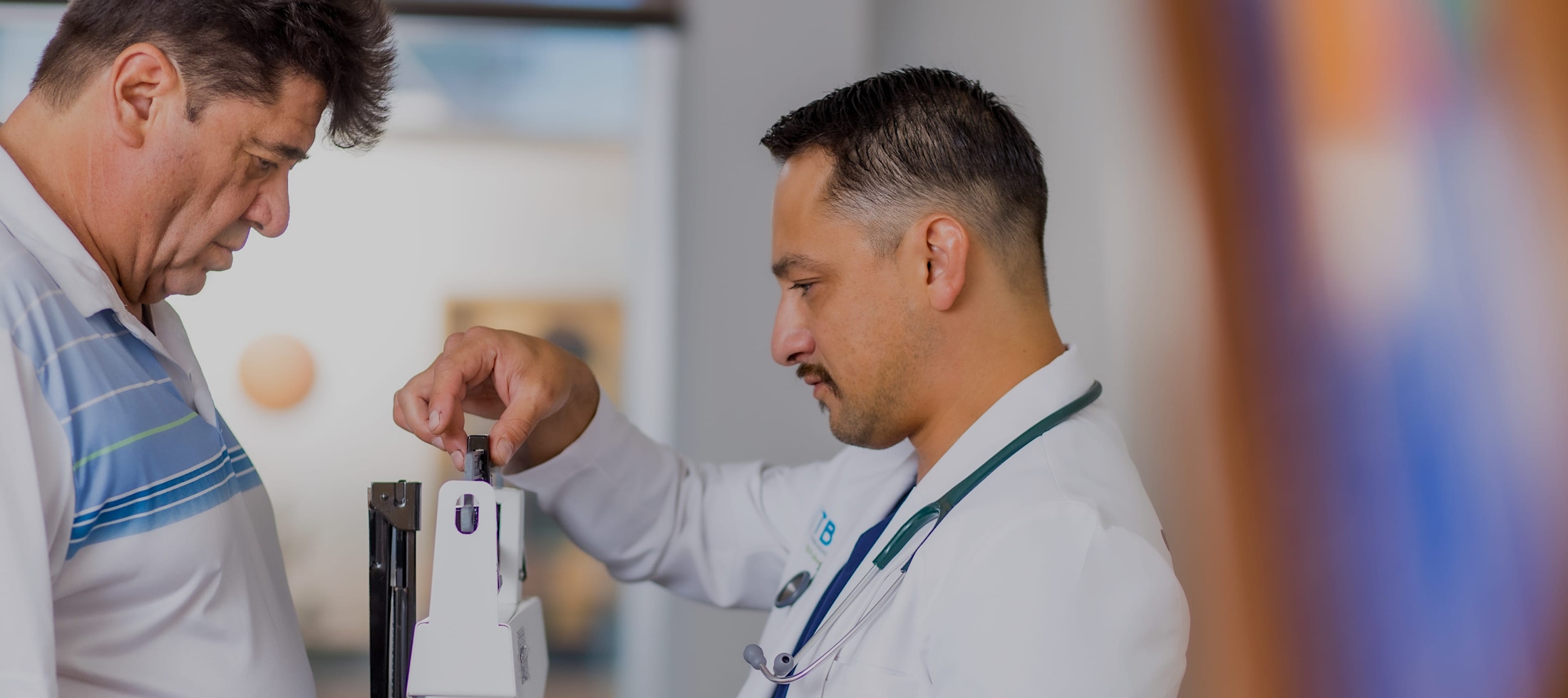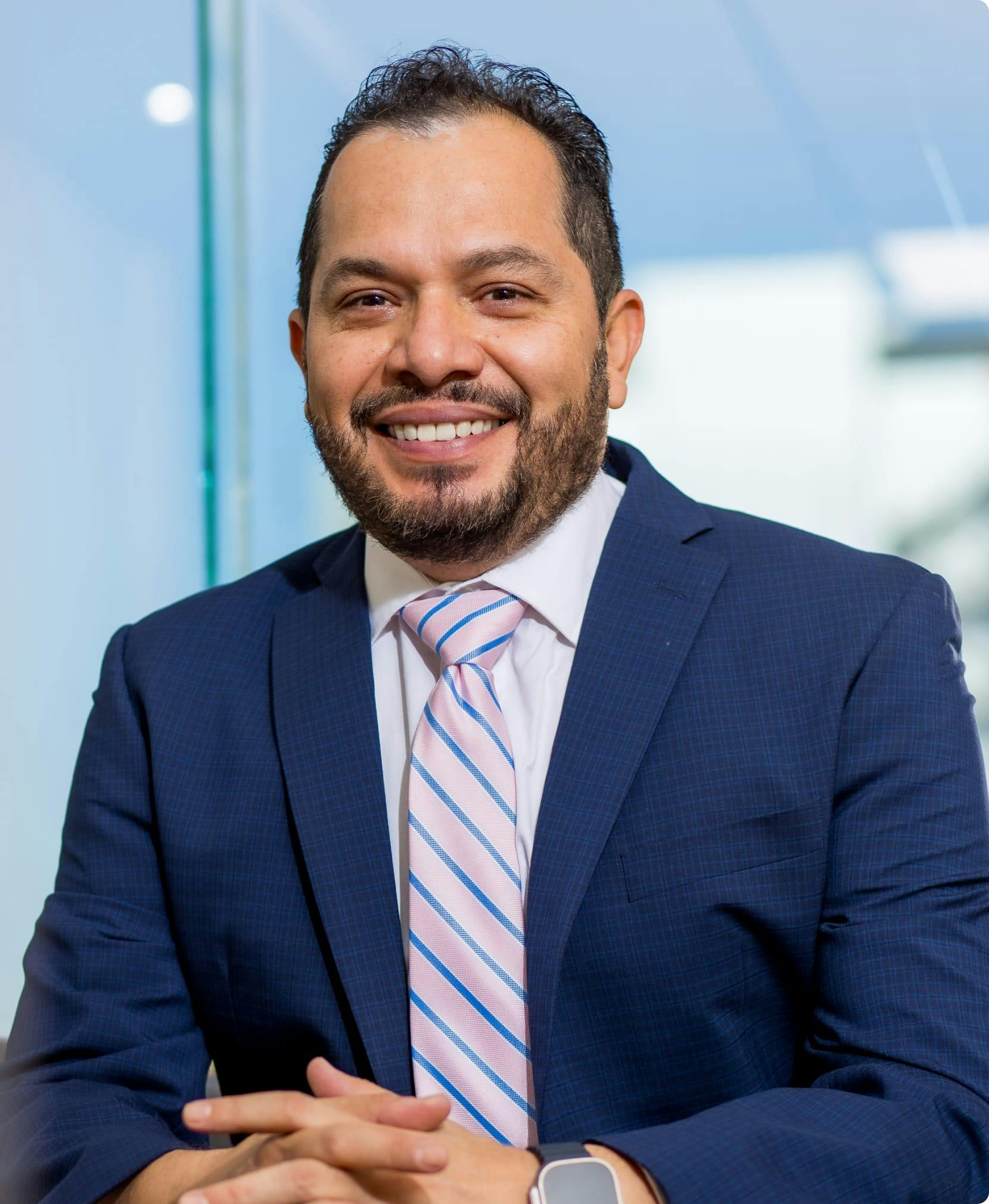

Dr. Fernando Garcia – A Pioneer in the Field of Laparoscopic Gastric Bypass
Dr. Garcia has over a decade of expertise in gastric bypass techniques and has performed over 10,000 successful bariatric procedures, delivering transformative, life-changing results for his patients. As someone who has experienced his own weight-loss journey, he understands firsthand how stressful and burdensome obesity can be. He is passionate about addressing all aspects of patient care, from nutritional education to his creation of online support groups that help patients keep the weight off long-term. Patients trust Dr. Garcia for his intrepid skills, genuine compassion, and unwavering commitment to safety.
Dr. Fernando García holds a Licensed Physician Degree from Universidad Michoacana de San Nicolás de Hidalgo. Prior to its completion, he pursued an elite residency in General Surgery at Hospital General (General Hospital), endorsed by Universidad Autónoma de Baja California (UABC). He currently serves as a professor of Advanced Laparoscopic Surgery at Universidad Autonoma de Baja California and has been on staff at Instituto Mexicano del Seguro Social for over 10 years.
Gastric Bypass Surgery FAQ
How does gastric bypass surgery impact the absorption of alcohol?
Can gastric bypass surgery affect mental health?
What are the risks of severe hypoglycemia after gastric bypass surgery?
Are there any restrictions on medications or over-the-counter products post-surgery?
What follow-up tests are necessary after gastric bypass surgery, and how often?
How does gastric bypass surgery impact the absorption of alcohol?
Post-surgery, alcohol is absorbed more quickly into your bloodstream, which can increase intoxication levels and the risk of alcohol-related complications. It's important to limit alcohol consumption and discuss safe levels with your healthcare provider.
Can gastric bypass surgery affect mental health?
Yes, while many patients experience positive changes in their self-esteem and quality of life after surgery, some may face challenges such as anxiety or depression due to rapid body changes and lifestyle adjustments. Ongoing mental health support is recommended to address these issues effectively.
What are the risks of severe hypoglycemia after gastric bypass surgery?
Postprandial hypoglycemia, a condition where blood sugar drops significantly after eating, can occur in some patients. Symptoms include shakiness, sweating, confusion, and, in severe cases, loss of consciousness. Managing meal composition and timing can help, and you should consult with your healthcare provider for specific guidelines.
Are there any restrictions on medications or over-the-counter products post-surgery?
Yes, you may need to avoid certain medications that can irritate the stomach, such as NSAIDs, to prevent ulcers. Additionally, some medications may require adjustments in form or dosage due to altered absorption. Always consult with your healthcare provider before taking any new medications or supplements.
What follow-up tests are necessary after gastric bypass surgery, and how often?
Regular follow-up tests are crucial to monitor your health and nutrient levels. These typically include blood tests to check for nutrient deficiencies, liver function tests, and occasionally tests to assess heart health and diabetes markers. Initially, these may be every few months, then annually after stabilization.


